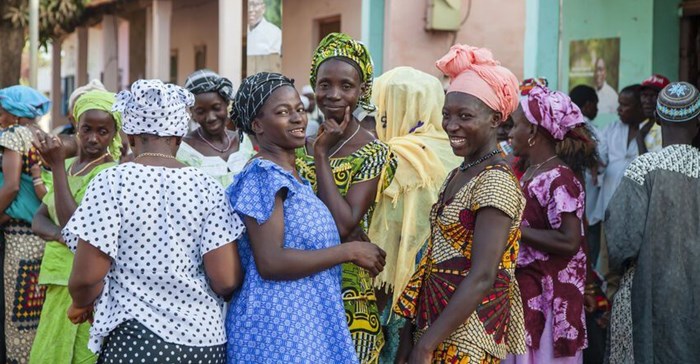Africa's overall well-being index, at 59.8, is lower in comparison to the global average of 61.4 and Middle East at 64.7, and also dropped from 61.2 during the pre-pandemic period in January 2020.

Source: © sigalavaca
123rfThis is according to the annual global study conducted by Cigna in March-April 2021 which interviewed 2.817 respondents in Africa out of 18,043 respondents globally. All interviews are conducted anonymously online.
The study also found that Africa’s stress incidences were found to be very high in the African continent at 91%, in comparison with a global average of 83%, and Middle East levels at 87.
However, its physical well-being index is 62.4 - higher than the global average of 58.2 with the Middle East levels at 61.3. The continent also ranks higher in the social well-being index at 64, compared to the global average of 61.6.
“The report gives us an overview of the impact of Covid-19 on consumer behaviours and expectations,” says Leah Cotterill, chief distribution officer, MEA at Cigna.
“Mirroring global trends, Africa is also witnessing an increase in incidences of stress, overwork, gaps in workplace wellness and overall well-being. It is time to work cohesively to raise awareness and drive positive change on this front.”
The top trends from the survey include:
- Adult Africans are more stressed. The pandemic situation has not helped the adult population in Africa. The study proves that financial worries, be it personal or family or the uncertainty about the future is leading to increased stress levels in Africa. Over 48% respondents in Africa experience disrupted sleep, 40% feel depressed, 38% are getting emotional and 43% have avoided socialising. A whopping 81% have observed their spouse to be stressed compared to 60% globally, with 53% experiencing mental symptoms. The stress is leading to a drop in respondents getting enough sleep at night with only 39% able to get sufficient sleep, compared to 46% in 2020. The silver lining is that only 45% children in Africa are stressed, compared to 55% globally and 56% in the Middle East.
- Job satisfaction in Africa is at woefully low levels.The study showed extremely low job satisfaction among Africans in terms of salary packages and employee benefits, slumping to 18% compared to a global average of 42%. Stability on the job front is another factor which is affecting the work well-being among Africans. From the pre-pandemic levels of 39% in 2020, the job stability has dropped to 31% in 2021, against the current global average of 60%. The study showed high satisfaction levels in workplace relationships [above 80%] and opportunity to learn and grow [74%] and workload / working hours at 68%, compared to 60% globally.
- Africans are increasingly looking for a job change. Nearly 48% of Africans are likely to look for a job change, which is markedly higher than the global average of 30% and the Middle East levels of 39%. Although there were less incidences of job changes in the past 12 months in the continent, compared to Middle East and globally, the trend is likely to swing the other way. One of the reasons is that there are gaps in employee needs in Africa, compared to the support infrastructure available to them in other global markets, such as health insurance which allows virtual health consultations or holistic support to help manage the work-life balance.
- Pandemic has worsened the financial well-being across Africa. On an average, less than 10% of the respondents in Africa believe that their current financial situation could meet their family’s hobbies, pay mortgage/rent, and ensure financial security in case of emergency, or have sufficient savings/ money for retirement. The Covid pandemic has worsened the situation.
- Whole Health among the priority list for Africans. The Africans are committed to healthy living amidst the evolving situation of the Covid pandemic globally. Whole Health has been rated as very important in the continent, compared to the global and the Middle East markets. A whopping 91% rate mental health to be extremely important, compared to 71% globally and 80% in the Middle East. Also, there is higher resilience in Africa [63%] compared to 39% globally and 50% in the Middle East.
- Increased number of Africans prefer hybrid health consultation. With markets slowly opening, Africans are preferring hybrid health consultations from their doctors and medical practitioners. Around 63% in Africa prefer a mix of both traditional and virtual health advisory, which is far higher than the global average of 52%. Approximately 27% in the continent prefer only virtual engagement, compared to 21% globally. The study also showed that over 50% of respondents who went in for virtual health consultation used it mainly for general health advice and counselling.
Read the full report here
